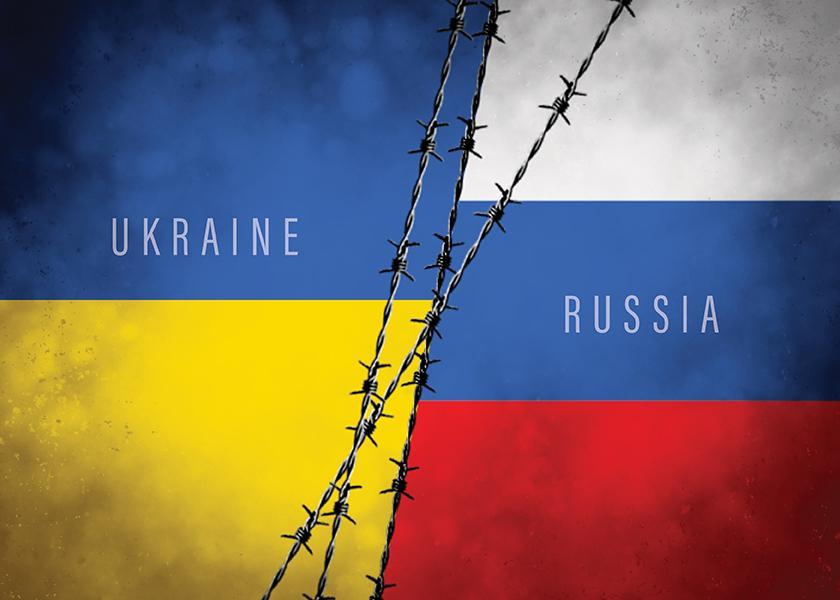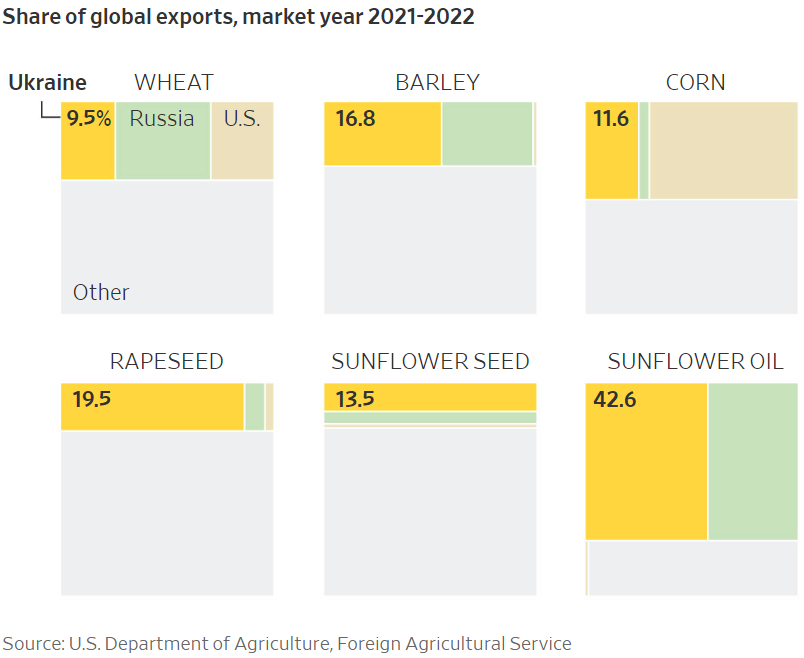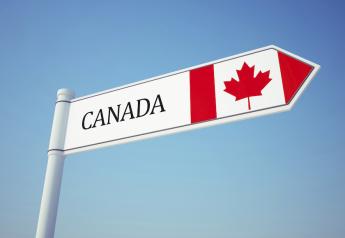Ukraine's Third Largest Exporting Terminal Destroyed By Russian Military

Tensions between Russia and the West are escalating as Russian President Vladimir Putin warned that Moscow would strike new targets if the U.S. supplied long-range missiles to Ukraine, according to Russian state media.
The news comes as Russia attacked Kyiv this weekend. The airstrikes followed days after the U.S. announced $700 million in aid to Ukraine, as President Vladimir Putin warned the West against sending more arms. Meanwhile, the U.K. will also send Ukraine longer-range missiles. Delivering new arms to Kyiv would only "drag out the armed conflict for as long as possible," Putin said yesterday.
Over the weekend, Russia also destroyed a major Ukrainian grain export terminal in Mykolaiv (southern Ukraine). Russia’s attack on Ukraine’s grain infrastructure came after last week saying it was open to allowing grain exports via “humanitarian corridors” from Ukrainian ports has heightened global supply concerns.
In Ukraine, some of the "fiercest battles" are being fought in the eastern city of Severodonetsk, the region’s top official said today, adding that the evacuation of 15,000 civilians remains impossible because of intense fighting.
Putin claims Russia's actions in Ukraine "have nothing to do" with the looming global energy and food crisis and has instead blamed Western economic policies. He also blamed European countries for not listening "to our urgent requests to preserve long-term contracts for the supply [of natural gas]" — another factor that he said led to inflation.
U.S. must sanction enablers of Russia’s war on Ukraine, Senators say. A bipartisan group of U.S. senators are asking for sanctions against “lower-tier enablers” of Russia’s invasion of Ukraine. The senators — including Sens. Mark Warner (D-Va.), Marco Rubio (R-Fla.), Ron Wyden (D-Ore.) and John Cornyn (R-Texas) — wrote to Treasury Secretary Janet Yellen, asking her to take into account a list of 6,000 Russian officials and regime enablers compiled by Anti-Corruption Foundation of Russian opposition leader Alexey Navalny.
Volodymyr Zelenskyy, Ukraine’s president, visited two cities close to the frontline in the Donbas region. He travelled to Lysychansk, just south of Severodonetsk, where Ukrainian forces are engaged in heavy fighting, and also to Soledar. The Ukrainians claim to have repulsed seven attacks across the whole of the region over the past 24 hours
Market Impacts
Ukraine is struggling to export its grain. Before Russia’s invasion, around 98% of Ukraine’s grain exports would flow from ports on the Black Sea. But those ports have been shut by a Russian naval blockade, and warehouses, rail yards and other key export infrastructure have been targeted and damaged by Russian attacks. Despite the war, Ukraine’s farms are expected to produce around 30 million tons of wheat, corn and other food commodities this year, the Wall Street Journal reports (link).
Traders and farmers, with the support of the Ukrainian government and neighboring nations, are seeking alternative routes to export those grains to stave off global food shortages and relieve soaring prices. But the new routes are longer, often backlogged and more expensive. The challenge is complicated by stretched infrastructure and continued Russian attacks on bridges and railways.
U.S. Warns Russia Trying to Sell Stolen Grain from Ukraine
The U.S. has warned the Kremlin is trying to profit by selling stolen wheat from Ukraine to drought-stricken countries in Africa. The New York Times reports in mid-May, the U.S. sent an alert to 14 countries, mostly in Africa, that Russian cargo vessels were leaving ports near Ukraine laden with what a State Department cable described as “stolen Ukrainian grain.”
The cable identified, by name, three Russian cargo vessels it said were suspected of transporting it. The American alert about the grain has only sharpened the dilemma for African countries, many already feeling trapped between East and West, as they potentially face a hard choice between benefiting from possible war crimes and displeasing a powerful Western ally, and on the other, refusing cheap food at a time when wheat prices are soaring, and people are starving.







